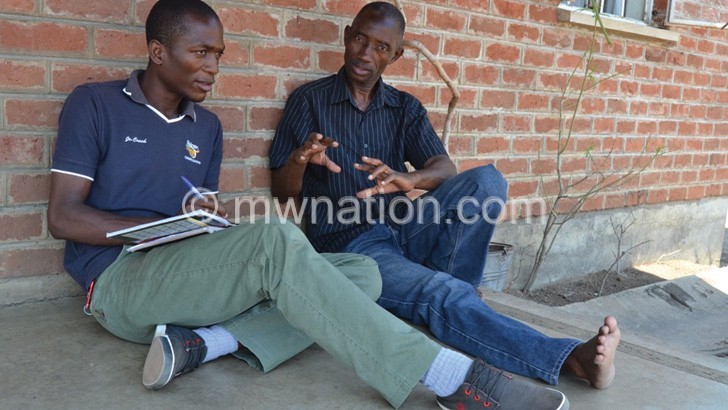Salima communities register 70% reduction in waterborne diseases
Communities under traditional authority (T/A) Ndindi in Salima have reduced cases of waterborne diseases such as cholera and dysentery by 75 percent in 2016, thanks to efforts by a German organisation Welthungerhilfe (WHH).
WHH is implementing the Health Clubs for Improved Hygiene and Nutrition (Clubs) Project using the Participatory Hygiene and Nutrition Education (PHNE) approach in traditional authorities (T/As) Chauma in Dedza and Maganga, Ndindi and Pemba in Salima.
The project, which is being financed by the Gesellschaft für Internationale Zusammenarbeit (GIZ), aims to sensitise communities on the need to develop innovative approaches and technologies that can lead to radical and sustainable improvements in sanitation in their homesteads.

Speaking in an interview on Friday, health surveillance assistant (HSA) for Chipoka Health Centre, Robson Mangwere, disclosed that the area has been suffering waste forms of waterborne and other hygiene-related diseases due to poor, inadequate and outright absence of personal and domestic sanitation and hygiene facilities.
Said Mangwere: “But things have significantly improved following the introduction of the PHNE. We have registered a reduction of waterborne diseases by over 70 percent in 2016 alone. We have also eliminated cases of open defecation in the area.”
Salima WHH field coordinator Percy Chiphanda says his organisation is equipping communities with skills to enable them develop innovative approaches and technologies that can lead to radical and sustainable improvements in sanitation in their homesteads.
Chiphanda said the PHNE approach, which works through Community Health Clubs, was developed as part of a consultative and integrative process aimed at establishing a hygiene promotion strategy that gives the power to the community.
“It facilitates and fosters community-based decisions making processes that promote feasible sanitation, hygiene and nutrition solutions and keeping each other accountable,” he explained.
Chiphanda says his organisation believes that equitable improvement of sanitation services should be achieved by the combined efforts of the government and the beneficiaries, based on community involvement and participation, under the control and supervision of government through the Ministry of Health.
Malawi does not have a single national participatory approach or educational material for promoting the proper use and/or maintenance of toilets, pit latrines and urinals.
In addition, sanitation projects seldom appear to address the promotion of safe hygiene with regard to using toilets.





